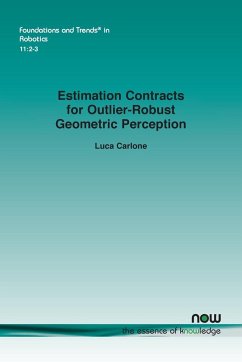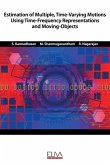Geometric perception is the problem of estimating unknown geometric models such as poses, rotations, and 3D structure from sensor data, such as camera images, lidar scans, inertial data, and wheel odometry. Geometric perception has been at the center stage of robotics and computer vision research since their inception. Outlier-robust estimation is a fundamental problem and has been extensively investigated by statisticians and practitioners. The last few years have seen a convergence across research fields towards "algorithmic robust statistics", which focuses on developing tractable outlier-robust techniques for high-dimensional estimation problems. Despite this convergence, research efforts across fields have been mostly disconnected from one another. This monograph bridges recent work on certifiable outlier-robust estimation for geometric perception in robotics and computer vision with parallel work in robust statistics. In particular, recent results on robust linear regression and list-decodable regression are adapted and extended to the setup commonly found in robotics and vision, where (i) variables belong to a non-convex domain, (ii) measurements are vector-valued, and (iii) the number of outliers is not known a priori. The emphasis here is on performance guarantees: rather than proposing radically new algorithms, conditions are provided on the input measurements under which modern estimation algorithms are guaranteed to recover an estimate close to the ground truth in the presence of outliers. These conditions are what we call an "estimation contract". The monograph also provides numerical experiments to shed light on the applicability of the theoretical results and to showcase the potential of list-decodable regression algorithms in geometric perception. Besides the proposed extensions of existing results, the main contributions of this monograph are (i) to unify parallel research lines by pointing out commonalities and differences, (ii) to introduce advanced material (e.g., sum-of-squares proofs) in an accessible and self-contained presentation for the practitioner, and (iii) to point out a few immediate opportunities and open questions in outlier-robust geometric perception.
Hinweis: Dieser Artikel kann nur an eine deutsche Lieferadresse ausgeliefert werden.
Hinweis: Dieser Artikel kann nur an eine deutsche Lieferadresse ausgeliefert werden.








